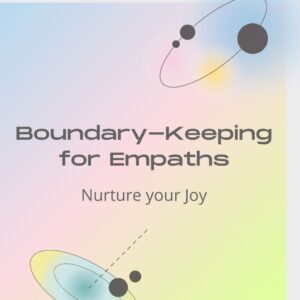
How to Have Your Cake and Eat It Too: A Commentary on Moderation
So I’m at the bakery case and know I want to cut down on the carbs. But everything looks so good, AND it’s gluten-free. The attendant looks at me expectantly and the pressure is on. What’s a guy to do? “I’ll just have an iced tea,” I say, not wanting to hold up the growing queue behind me.
I always laugh at my observing self in these situations, agonizing over the plethora of choices this American lifestyle affords me. By what measure am I making these decisions, and how conscious am I really?
The Tibetan Buddhists believe there will always be suffering in this world of samsara, that for every degree of joy and wonder and hope, there’s also the equivalent in anger and anguish and despair. To me, there is a deeper teaching here which I won’t really get into in this post, but it does seem to point to a more commonplace principle—everything in moderation.
I can see the good intentions behind this phrase. How can I know sadness if I haven’t actually experienced joy? If there is loss and anguish around me all the time, does that make it easier to feel joy around the small respites in life? If I didn’t want so much, maybe I wouldn’t suffer over my choices, and would be happier with what I have.
You gotta watch Buddhist philosophy–it really makes you think!
The history of Buddhism spans the 6th century BC to the present, starting with the birth of Buddha Siddhartha Gautama in Lumbini, Nepal. This makes it one of the oldest religions practiced today. How could I argue with a 2,500 year old tradition?
Yet, we hear a different story from a similarly influential tradition: the Islamic, mystical tradition of the Sufis. Why was Rumi so happy-go-lucky in his writing? He is much more emotional in how he presents his spirituality.
A mystic from the 13th century, Rumi’s writings inspired us to focus on direct union with God, through love alone and no intermediaries. His philosophy inspired the famous Order of the Whirling Dervishes to commune with God through music and joyful, meditative dance. It’s important to note that Rumi was not seen as a prophet in the Islamic faith, although his writings were treated with the same honor as scripture in other traditions.
Despite his almost Tantric philosophy of becoming deeply present to adore the divine in every moment, inflaming ourselves with prayer and devotion of God, Rumi is also quoted as writing “Having suffered a blow, I shall know a caress.”
To me this sounds like it draws from the Buddhist principle mentioned earlier, but given the context of his writings, it seems like he is coming to a very different conclusion. My interpretation is you learn how an experience feels good when compared to a painful experience, but that doesn’t mean you shouldn’t seek out joy.
Assuming both approaches have merit, how can they leave us with such different feelings about the nature of our spiritual journey? Are they just two sides of the same coin?
At risk of taking teachings from these two traditions out of context, I’ll ask the question: can’t we just have joy?
What do you think?

